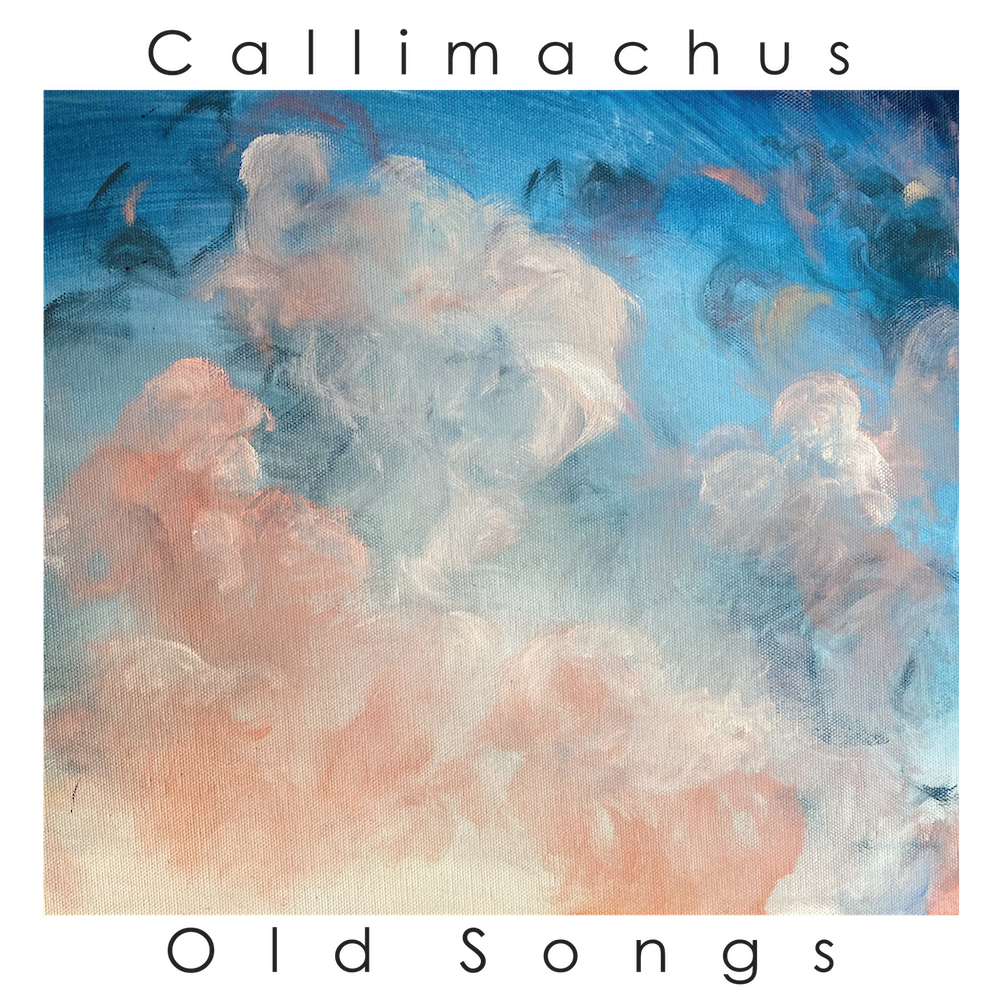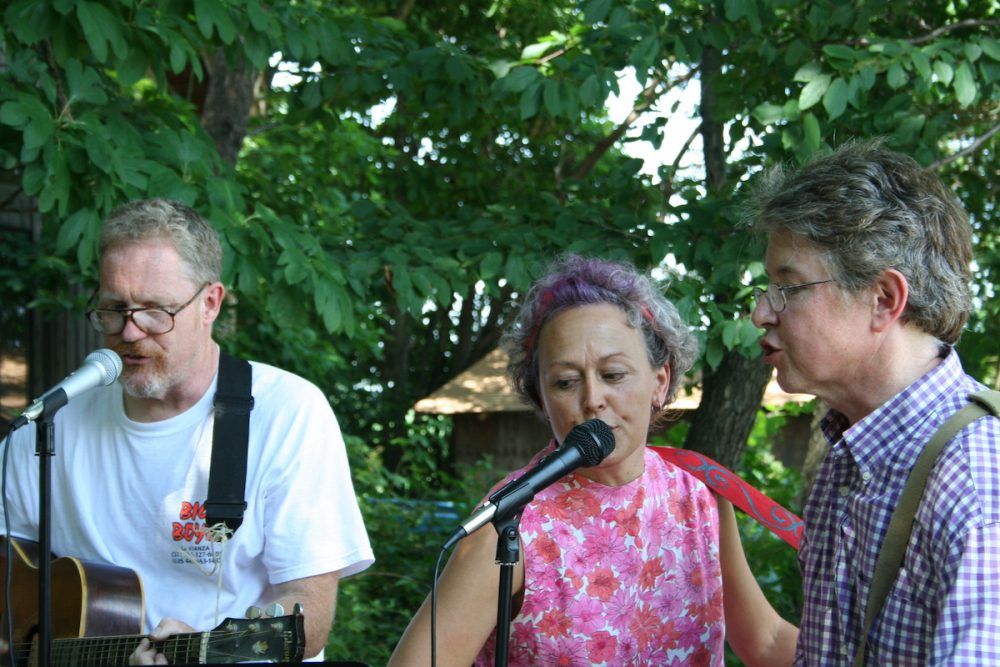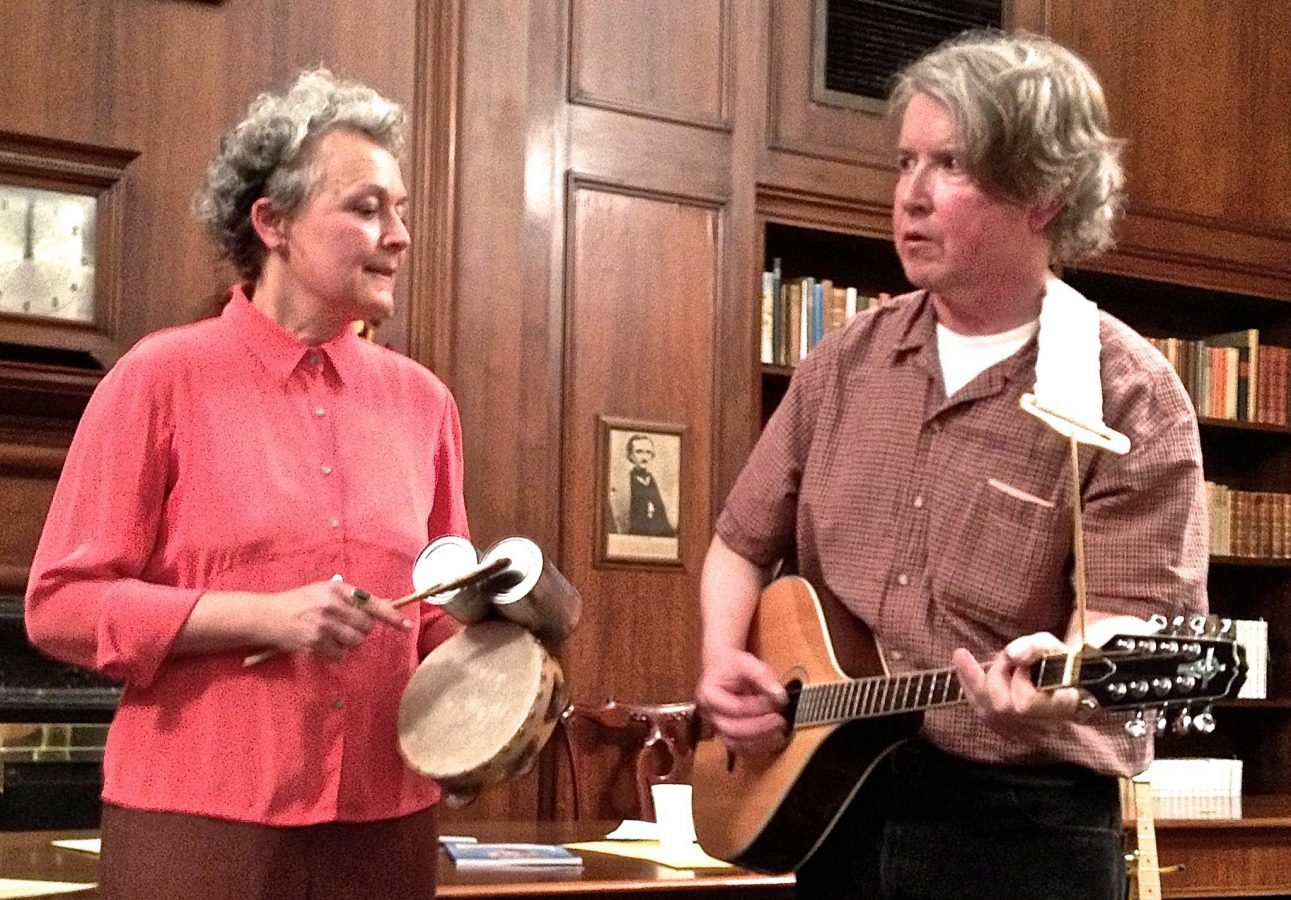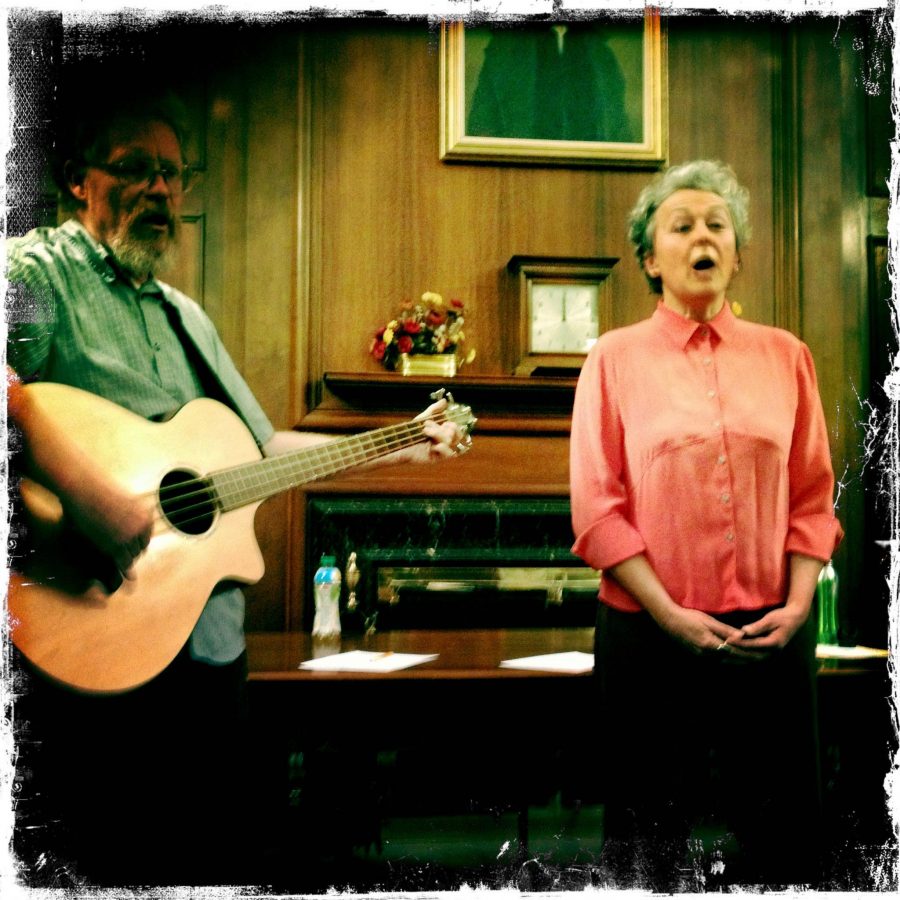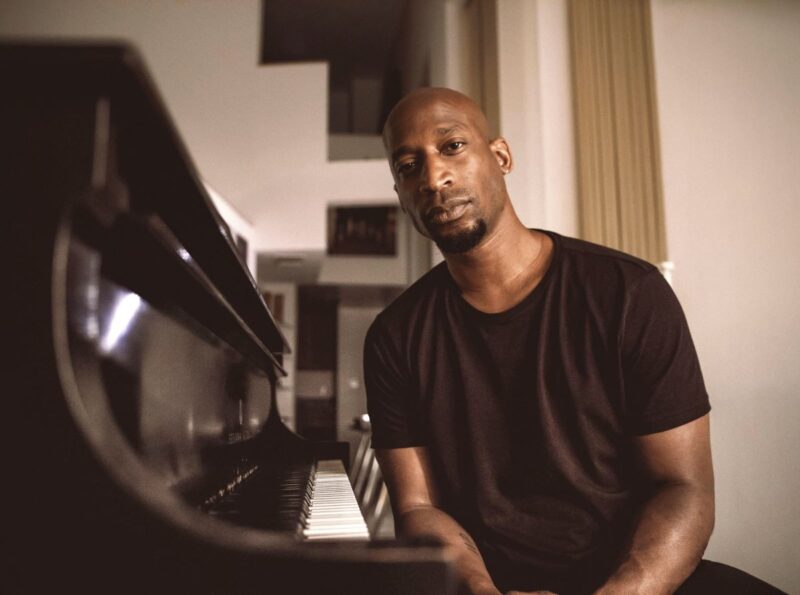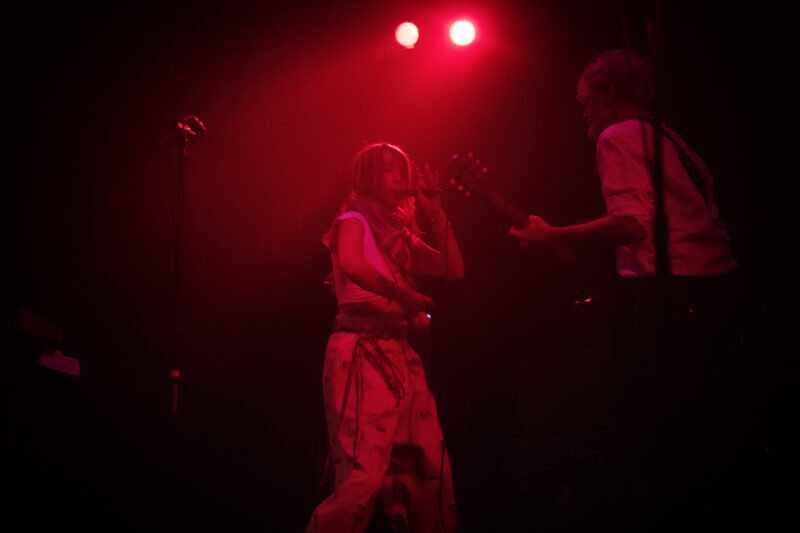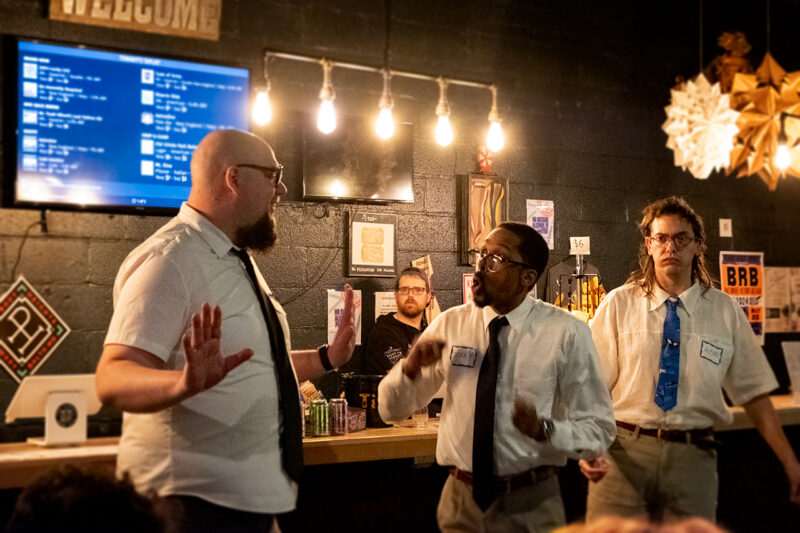At the beginning of Aetia, the longest poem by Callimachus, the god Apollo appears to the ancient poet and admonishes him, “Fatten up your animals but keep your verses lean.” Noting this in the prologue of the epic creation myth poem, Callimachus immediately defies the god, writing a poem that runs four books long.
The Baltimore supergroup Old Songs sings this divine advice in “Wolf God Apollo,” a centerpiece of their new album, Callimachus: Songs From The Great Library. Voiced by Elizabeth Downing (Mole Suit Choir, Lambs Eat Ivy) and accompanied on guitar by Mark Jickling (Half Japanese), the track serves as sort of a mission statement for the project, which whittles the extensive body of work Callimachus left behind into a tidy 20-song cycle.
A North African poet working in the third century BCE, Callimachus produced hundreds of elegiac, erotic, and satiric poems as well as fables, hymns, aesthetic philosophy, and more. Librarians know Callimachus as the author of the Pinakes—a 120-volume catalog of the holdings of the Library of Alexandria that provided the foundation for library science.
Old Songs began in 2002 as a collaboration in translation by Jickling and Chris Mason (The Tinklers), who would then start composing music to accompany their new interpretations. Callimachus: Songs From The Great Library is the first Old Songs release to be accompanied by a book of the new translations. Downing, an accomplished painter, provided the cover art.
